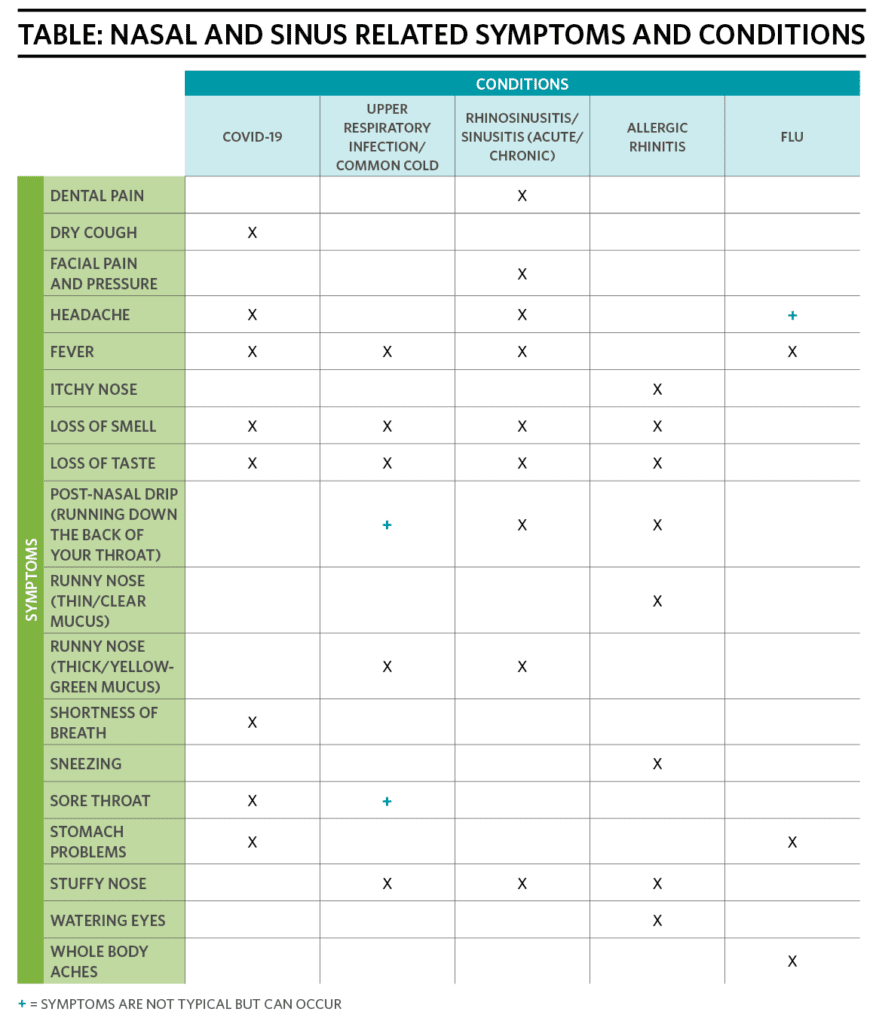Menu
What You Should Know About Sinus Disease and Disorders
Nasal congestion is a very common complaint and can have many different causes, including inflammation inside the nose due to allergies, or structural abnormalities such as a deviated nasal septum, turbinate blockage, or nasal polyps. Primary symptoms of rhinosinusitis, commonly known as sinusitis, may include:
- Runny nose
- Post-nasal drip
- Nasal obstruction or blockage
- Facial pressure or pain (usually not sharp)
- Dental pain
- Thick yellow/green mucus (colored mucus can be from many causes, including infection, acid reflux, environmental pollution, and dryness)
- Loss of smell
- Sinus headache (not as common)
- Whole-body ache is less common in sinus disease, particularly for those suffering from chronic sinusitis
If nasal congestion is affecting your quality of life and you are not responding to typical medical management with saline and corticosteroid nasal sprays or allergy treatment, it is recommended that you see an ENT (ear, nose, and throat) specialist.
What Are Some Common Causes of Sinus Disease?
The average adult has two to three colds per year. They are most frequently caused by rhinovirus, and the common cold typically lasts for seven to 10 days. If cold symptoms last for more than seven to 10 days and/or symptoms worsen prior to seven days, there may be a bacterial infection often requiring antibiotics.
Acute sinus infections (symptoms lasting less than a month) are usually caused by viral upper respiratory infections (URI) and occasionally from bacterial infections. Chronic sinus disease (symptoms lasting an extended period of time) is a more complex inflammatory disorder that has multiple associated risk factors. These include asthma, aspirin sensitivity, environmental allergies, smoking, environmental or occupational irritants or pollutants, cystic fibrosis, immune deficiencies, systemic inflammatory diseases, dental infections, or anatomic abnormalities.
Having symptoms on only one side of your nose or face can be normal during an acute infection but should clear as the infection improves. If these one-sided symptoms last for longer than a normal cold, this could possibly indicate a structural abnormality of the nasal cavity such as septal deviation, nasal collapse, tumor, polyp, or dental infection. These and other severe symptoms, such as shortness of breath, debilitating pain, swollen eyes, vision changes, high fever, severely stiff neck, and/or mental confusion should be treated by an ENT specialist.
What Types of Treatments Are Available for Non-COVID-19 Nasal Symptoms?
Many over the counter (OTC) treatments for sinus congestion and drainage are helpful and available, but not all OTC treatments are good to put inside the nose. Nasal steroid sprays, oral antihistamines and decongestants, saline rinses, and menthol vapor or steam can help with allergy symptoms, such as sneezing, runny nose, itchy eyes, and/or itchy throat. Systemic steroids (oral or injected) might be given for patients with chronic sinusitis or severe allergic rhinitis. However, nasal decongestant sprays (Afrin®, Neosynephrine®) are temporary therapies that should be limited to less than one week of use, as they can become addictive and cause worsening nasal congestion.
Treatment options may vary depending on how long the symptoms have been present or how severe they are. Other conditions that can be confused with chronic rhinosinusitis (CRS), lasting three months or longer, can include:
- Perennial allergic rhinitis
- Vasomotor rhinitis
- Migraine or other primary headaches such as tension headache, cluster headache, etc.
- Temporo-Mandibular Joint (TMJ) disorders
For patients experiencing chronic symptoms of nasal obstruction and congestion, nasal drainage, facial pressure, and/or decreased smell that are not responding to medications or other treatments, a more thorough exam by an ENT specialist is recommended.

Related Conditions
The information on ENThealth.org is provided solely for educational purposes and does not represent medical advice, nor is it a substitute for seeking professional medical care.
Copyright 2025. American Academy of Otolaryngology–Head and Neck Surgery Foundation

